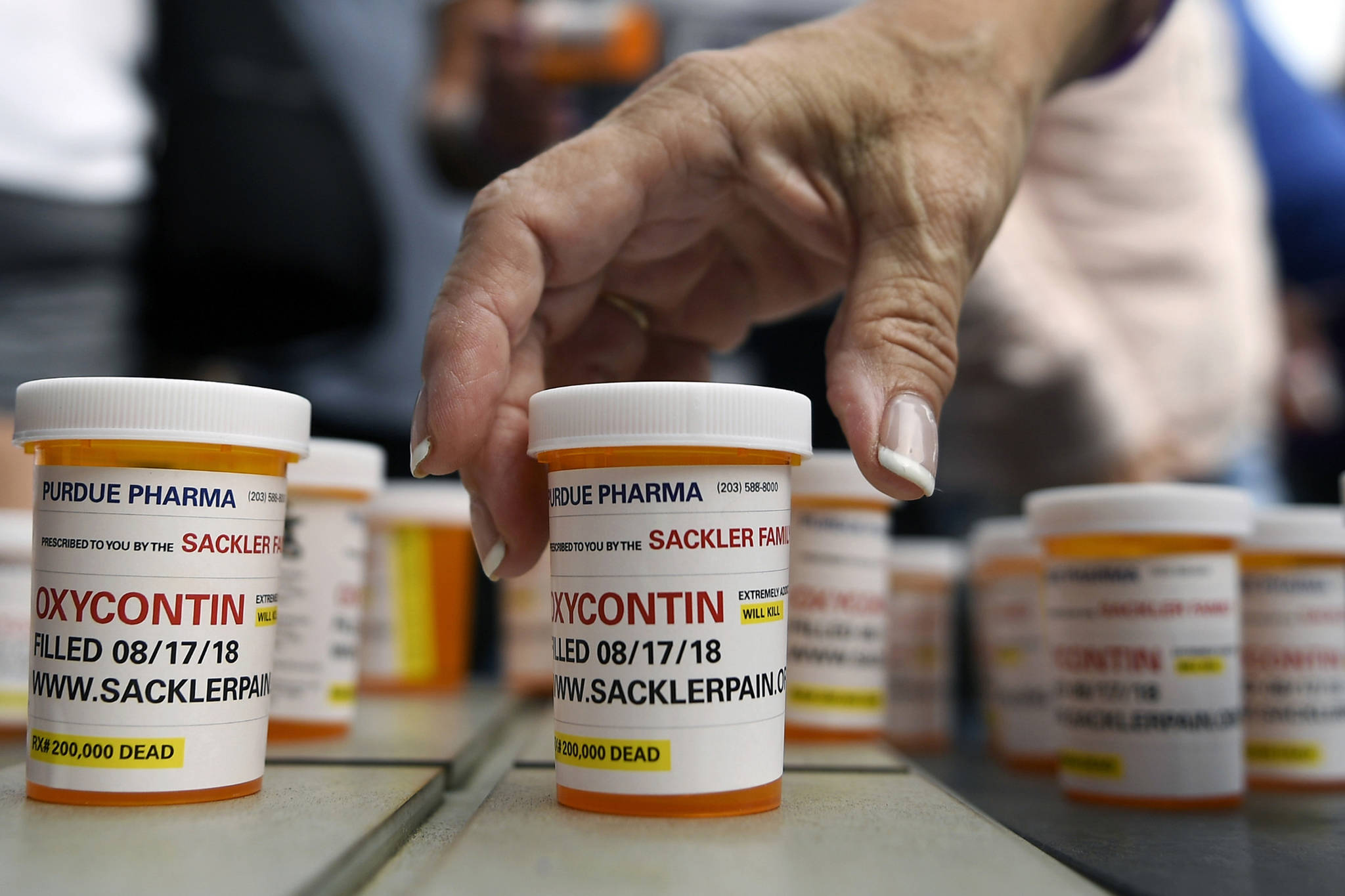Earlier this year, U.S. Customs and Border Patrol made the largest bust of illegal fentanyl in the country’s history, seizing 254 pounds of the deadly drug at the southern border. It was just the latest in a long line of stories and data indicating that this synthetic drug is uniquely dangerous for American citizens, their families and our communities.
You don’t have to look very hard to understand why the current stage of the opioid epidemic is perhaps the most dangerous. While deaths associated with painkillers and heroin are still far too common, fentanyl accounted for nearly half of the 72,000 drug overdoses in 2017, up from only six percent in 2012. One of the many reasons fentanyl is so dangerous is because amounts barely discernable to the naked eye, mixed with heroin, can still be deadly.
[The opioid crisis costs Alaska more than $1B per year]
Alaska hasn’t been spared the scourge of this drug. According to a report from the Alaska Department of Health and Social Services Section of Epidemiology, 28 people died from fentanyl overdoses in 2017 — up from five in 2016. That’s a nearly six-fold increase in just a year, and fentanyl continues to increase as a percentage of opioid-related deaths. Though no segment of the population is immune, fentanyl has hit the Alaska Native community particularly hard.
One reason that fentanyl has become such a big problem in a relatively short amount of time is that it is not subject to new Food and Drug Administration regulations designed to crack down on prescription drug abuse. Often manufactured illegally in China, fentanyl usually enters undetected via both our southern and northern borders. This can be done as simply as mailing a package through the U.S. Postal Service.
[State sues opioid manufacturer, alleging willful deception]
We can no longer sit idly by and simply hope this problem gets solved on its own.
Fortunately, last year Congress passed, and President Donald Trump signed, legislation that contains new measures to combat the opioid crisis, and specifically fentanyl. The Support for Patients and Communities Act received strong bipartisan support, including from Sens. Lisa Murkowski, Dan Sullivan and Rep. Don Young.
Among the most impactful provisions in this bill is a requirement that USPS screen for fentanyl in packages shipped in from overseas, particularly China. It establishes better interagency coordination and fentanyl detection measures at border crossings. The bill increases funding for addiction treatment, as well as several key changes to Medicare and Medicaid that will make it easier for recipients to get the care they need.
[Opinion: Marijuana is no different than other intoxicating substances]
Last year, Alaska received a waiver from the federal government to expand recovery and treatment services to those on Medicaid. The state is also using over $2 million in federal funds to expand recovery residences at 10 facilities across the state. These are good steps and should be applauded.
But Congress can and should do more. For instance, it should pass the Stopping Overdoses of Fentanyl Analogues Act, which would give law enforcement the flexibility to combat the crisis by allowing the Drug Enforcement Agency to quickly classify new strands of fentanyl as Schedule I controlled substances. The SOFA Act is supported by 52 U.S. state and territory attorneys general but has yet to be passed by Congress.
The fentanyl bust at the southern border provides even more evidence for what many of us already knew: fentanyl is one of the most-deadly drugs we have ever seen, and it is leaving nothing but death and destruction in its wake. But it’s also a problem we can solve with smart and proactive policy choices.
Our law enforcement agencies, medical professionals and regulators, and treatment centers need adequate support and tools to combat fentanyl smuggling to keep Alaskans safe. Now is the time to put our foot on the gas in the drive to end the opioid crisis once and for all.
• Cheri McGuire lives in Anchorage and is a lifelong Alaskan, community leader, longtime small business owner and a dedicated mother and grandmother. My Turns and Letters to the Editor represent the view of the author, not the view of the Juneau Empire.

